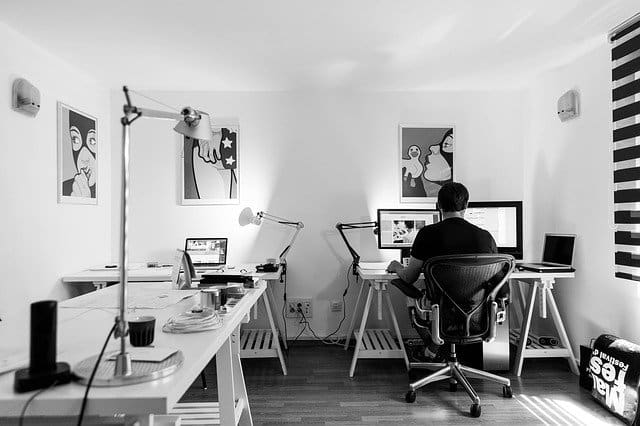In the ever-evolving landscape of modern workspaces, the design of desk tables has become a pivotal element in enhancing productivity, comfort, and aesthetic appeal. As the lines between traditional and contemporary office environments blur, designers are pushing the boundaries of creativity to develop innovative desk table design that not only meet the functional needs of users but also contribute to the overall ambiance of the space. In this article, we will explore some cutting-edge desk table designs that seamlessly blend form and function, creating workspaces that inspire creativity and efficiency.
Ergonomics at the forefront
One of the key considerations in modern desk table design is ergonomics. With an increasing number of people spending long hours at their desks, designers are prioritizing the creation of ergonomic desk solutions that promote comfort and well-being. Adjustable height desks, for instance, allow users to customize the height of their work surface, promoting a healthier and more adaptable workspace. This design not only accommodates different body types but also addresses the growing awareness of the health risks associated with prolonged sitting.
The integration of technology
In the digital age, technology is an integral part of the work environment, and desk table designs are evolving to accommodate this seamlessly. Smart desks, equipped with integrated charging ports, wireless charging pads, and cable management solutions, are becoming increasingly popular. These designs not only eliminate clutter but also contribute to a more streamlined and organized workspace. Additionally, some desks are equipped with built-in touch controls, allowing users to adjust settings such as desk height, lighting, and even monitor positions with a simple touch.
Sustainable materials and designs
As sustainability becomes a focal point in design across various industries, desk table designers are exploring eco-friendly materials and manufacturing processes. Bamboo, reclaimed wood, and recycled metals are being incorporated into desk designs, providing a visually appealing and environmentally conscious alternative to traditional materials. Moreover, modular desk systems are gaining traction, allowing users to customize their workspace according to their needs and preferences. This adaptability not only reduces waste but also ensures that the desk can evolve with the changing requirements of the user.
Space-saving innovations
With the increasing trend of remote work and the rise of smaller living spaces, there is a growing demand for desk tables that optimize space without compromising functionality. Foldable desks, wall-mounted desks, and compact multi-functional designs are emerging to meet this need. These space-saving solutions allow users to create a dedicated workspace without sacrificing precious square footage. Wall-mounted desks, for example, can be folded away when not in use, transforming a home office into a versatile living space.
Aesthetics and personalisation
Desk table designs are no longer solely focused on functionality; aesthetics play a crucial role in creating an inspiring and motivating workspace. Contemporary designs often feature clean lines, minimalist aesthetics, and a variety of color and material options. Some manufacturers even offer customizable options, allowing users to choose the finish, color, and accessories that best suit their personal style. The goal is to create a workspace that not only facilitates productivity but also reflects the individuality of the user.
Collaborative workspaces
In the era of teamwork and collaboration, desk table designs are evolving to support group work and creative ideation. Collaborative desk configurations, such as circular or hexagonal layouts, encourage communication and interaction among team members. Some desks even come with built-in whiteboards or writable surfaces, fostering a dynamic and creative environment. These designs recognize the importance of collaboration in today’s work culture and provide solutions that facilitate teamwork and idea-sharing.
Wellness-centric designs
As the awareness of the impact of the physical environment on mental well-being grows, desk table designs are incorporating elements that promote wellness. Biophilic design principles, which integrate natural elements into the office workspace, are gaining popularity. Desks with built-in planters, natural wood finishes, and ample natural light are becoming more prevalent. These designs aim to create a harmonious and calming workspace that contributes to reduced stress and increased productivity.
Conclusion
In conclusion, the world of desk table design is undergoing a transformative phase, driven by the changing nature of work and the increasing emphasis on user experience. From ergonomic considerations to sustainable materials, from space-saving innovations to collaborative configurations, the evolution of desk tables reflects a holistic approach to creating workspaces that enhance both functionality and aesthetics. As we move forward, it is exciting to anticipate the continued integration of technology, sustainability, and user-centric design in shaping the desks of the future. Whether in a corporate office or a home setting, the desk table is no longer just a piece of furniture; it is a dynamic and essential component of the modern workspace.








